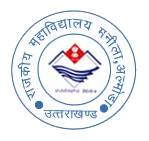 Learning is, of course, the transcendent value that undergirds almost all educational activity. The purpose of research is to build on past learning to create new learning. The purpose of teaching is to improve and expand student learning. The purpose of service is to translate learning and provide learning to improve communities and citizens. All educators strongly value learning as a continuing activity for themselves and as the outcome for others of their efforts. But ―learning‖ has been more of an implied mission in higher education than a visible mission. It is the visible mission‘s research, teaching, and service that determine the policies, practices, programs, and the uses of personnel in our institutions. And it is the visible missions on which all rewards are based.
Learning is, of course, the transcendent value that undergirds almost all educational activity. The purpose of research is to build on past learning to create new learning. The purpose of teaching is to improve and expand student learning. The purpose of service is to translate learning and provide learning to improve communities and citizens. All educators strongly value learning as a continuing activity for themselves and as the outcome for others of their efforts. But ―learning‖ has been more of an implied mission in higher education than a visible mission. It is the visible mission‘s research, teaching, and service that determine the policies, practices, programs, and the uses of personnel in our institutions. And it is the visible missions on which all rewards are based.
One of the highest honors that can be bestowed on a professor is that of Distinguished Research Chair. Ernest Boyer‘s seminal work, Scholarship Reconsidered, was an attempt to right the balance that had tilted too far in the direction of traditional research over other forms of scholarship.
It is generally inferred that learning is the primary purpose of education; but policies, practices, and value statements often reflect other priorities.
Any student of education can cite the three primary missions most often articulated: research, teaching, and service. In many universities, however, the reward system places higher value on research over teaching and service. New tenure-track faculty is often warned by colleagues and mentors against investing too much energy and time in their teaching assignments. Universities have established distinguished research chairs as a clear designation of the primacy placed on research.
Prof. (Dr.) Girja Shankar Yadav
(PRINCIPAL)


